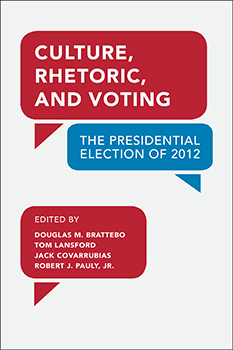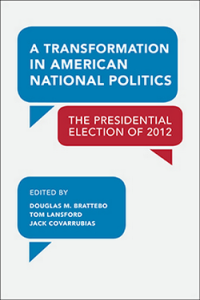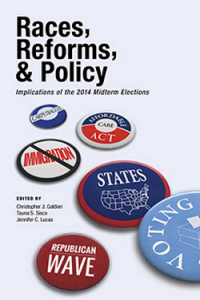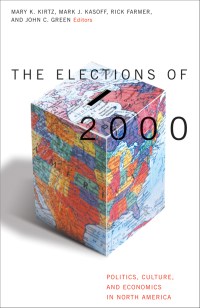Description
The presidential election of 2012, one of the most important in American history, was the product of complex and fast-moving changes—demographic, technological, and economic—surfacing in American society. Particularly prominent in the scholarly analyses in this volume (a companion volume to A Transformation in American National Politics: The Presidential Election of 2012) are: the psychology behind Barack Obama’s presidential leadership; the role of religious and cultural divisions in contemporary American politics; the rhetorical approaches of the two nominees; and trends in voting.
About the authors
Robert J. Pauly, Jr. is Associate Dean for Gulf Coast Operations of the College of Arts and Letters and Tenured Associate Professor of International Policy and Development at The University of Southern Mississippi. His research interests focus broadly on the fields of U.S. foreign policy, national security, and homeland security, with emphasis on American policy toward the states of the greater Middle East. He is the author of five books and nearly 40 academic articles, essays, and book chapters, including, most recently, The Ashgate Research Companion to US Foreign Policy (2010). He analyzes U.S. foreign policy and national security issues during a weekly appearance on the Gulf Coast Mornings radio show on 104.9 FM in Biloxi, MS.
Douglas M. Brattebo is Director of the Center for Engaged Ethics and Assistant Professor of Political Science at Hiram College in Hiram, Ohio. Brattebo is the coeditor of three other books, including The Obama Presidency: A Preliminary Assessment (2012). He is also the author of many book chapters, journal articles, and book reviews on topics ranging from President Obama’s firing of General Stanley McChrystal to Newt Gingrich’s crucial role in undermining civility in American political life.
Jack Covarrubias is the Director of the Center for Policy and Resilience at the University of Southern Mississippi Gulf Coast in Long Beach, Mississippi. Covarrubias is a member of the governing board of the National Social Science Association and is coeditor of the journal White House Studies. Over several years in the military and in the academic sphere his research interests have ranged from security studies, American foreign policy, and the office of the President. He has published numerous works, including most recently The Obama Presidency: A Preliminary Assessment (2012) and Fostering Community Resilience: Homeland Security and Hurricane Katrina (2010).
Tom Lansford is the Gulf Coast Academic Dean at the University of Southern Mississippi, Long Beach, and a Professor of Political Science. Lansford is the author, coauthor, editor or coeditor of more than forty books, and the author of more than one hundred essays, book chapters, and reviews. His books include the Historical Dictionary of U.S. Diplomacy Since the Cold War (2007) and 9/11 and the Wars in Afghanistan and Iraq: A Chronology and Reference Guide (2011). His more recent edited collections include: Judging Bush (2009) and The Obama Presidency: A Preliminary Assessment (2012).
Other books by Douglas M. Brattebo, Jack Covarrubias, Tom Lansford, and Robert J. Pauly, Jr.








